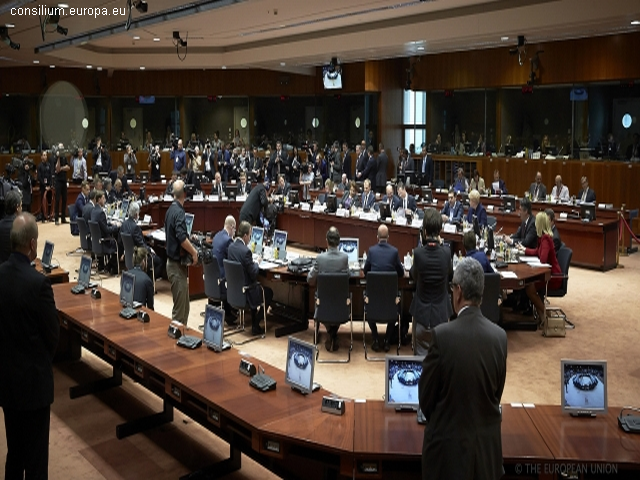European Decisions on Mediterranean Refugee Crisis
EU leaders convened on Thursday in Brussels to work out an action plan to tackle the northern African refugee crisis.

Corina Cristea, 24.04.2015, 13:29
An Amnesty International report shows that out of 23 refugees trying to cross the Mediterranean into the EU, one dies because of the poor state of the boats used by smugglers
As the migration issue grows into an acute EU problem, European leaders held an emergency meeting in Brussels to find solutions. The special summit was convened after the week before a boat carrying hundreds of people, mostly illegal migrants from Libya and Syria, sank off the Libyan coast. Over 800 deaths thus added to the 900 ones reported since the beginning of the year during attempts to reach the EU by sea. This is not a new problem, but data indicate that the wave of illegal migrants has considerably increased since last year. Refugee centres in Italy and Greece are overcrowded, and Germany received 173 thousand asylum applications last year.
Facing a growing number of immigrants, Italy, which has received 25 thousand refugees this year alone, has lately called for a military intervention against Libyan people smugglers. PM Matteo Renzi has requested the agreement of the EU for destroying the boats used by traffickers before these cross the Mediterranean. The suggestion was backed by France, whose Foreign Minister Laurent Fabius stressed that those boats did not appear just out of nowhere.
There are criminals and even terrorists who make profits from the desperation of people. The head of the European Council, Donald Tusk, emphasised that this was a European problem, and not only a problem of the countries in the south of the continent. We have a shared responsibility, he added, and called on all member countries to join efforts to reduce the refugee death toll.
In his address, the Romanian president Klaus Iohannis focused on the need for solidarity with the countries that bear the brunt of receiving these migrants. In the medium and long run, we need to address the roots of this phenomenon, Iohannis said, namely the poverty in the North African areas that these refugees are trying to leave. The President also said Romania is willing to send experts to the area.
The participants in the summit agreed to triple the funding for Mediterranean search and rescue, with operation Triton set to benefit from 120 million euro per year, as against 36 million at present. The EU will also look at ways to capture and destroy the boats used by smugglers, will step up efforts to prevent prospective sub-Saharan African migrants from reaching Libya and will simplify visa and asylum procedures. Moreover, EU and African countries will hold a special summit this year, focusing on the challenges presented by the illegal migration from Africa to Europe.






























